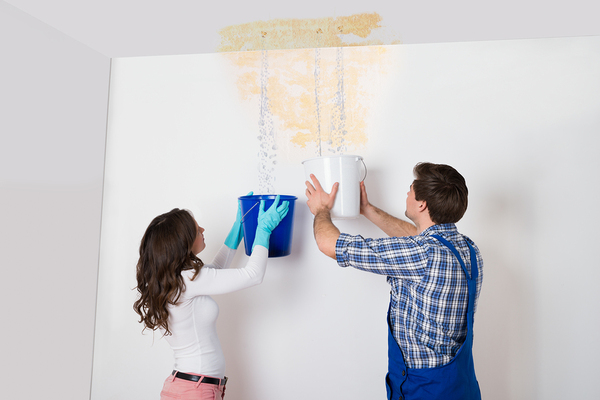Your House's Most Frequent Leak Factors: Investigation
Your House's Most Frequent Leak Factors: Investigation
Blog Article
They are making several great points related to Common Water Leaks In House in general in the content down below.

Leakages not only create waste of water however can also trigger unneeded damages to your home as well as advertise undesirable natural development. By understanding as well as looking for daily circumstances that create leakages, you can shield your residence from future leakages as well as unnecessary damages.
Encroaching origins
A lot of water leakages begin outside your home rather than inside it. If you see a sudden decrease in water pressure, state in your faucet, require time to go out and analyze your lawn. You might notice wet spots or sinkholes in your lawn, which may mean that tree roots are attacking water lines creating water to seep out. You can have your plumber check for intrusion, especially if you have trees or shrubs near your residential property.
Corroded water systems
As time goes by, your plumbing system ages and also deterioration such as rust may start eating away the pipes. This could be the cause of discoloration or bending on your water pipes. This asks for an inspection with your plumber right away. Think about changing the pipelines since they are at a greater threat of corrosion than the newer designs if our plumbing system is old.
Defective Pipe Joints
Pipeline joints can wear away over time, resulting in water leakages. If you have loud pipes that make ticking or banging sounds, specifically when the warm water is turned on, your pipeline joints are probably under a great deal of stress.
Immediate temperature changes.
Severe temperature modifications in our pipes can trigger them to broaden as well as contract all of a sudden. This expansion and tightening may trigger splits in the pipes, particularly if the temperature are below cold.
Poor Water Connectors
At times, a leakage can be brought on by loosened hose pipes and pipelines that provide your home appliances. More often than not, shifting is what causes the loosened water Connections. You might locate when it comes to a washing maker, a tube may spring a leak due to shaking throughout the spin cycle. In case of a water links leak, you may notice water running directly from the supply line or puddles around your devices.
Obstructed Drains
Clogged drains may be bothersome as well as inconveniencing, however they can often wind up creating an overflow causing rupture pipes. Keep removing any materials that may decrease your drains pipes that might obstruct them to avoid such aggravations.
All the above are reasons for leaks yet not all water leakages arise from plumbing leaks; some leakages may come from roof covering leakages. All leakages need to be fixed promptly to avoid water damage.
Leakages not only trigger waste of water yet can additionally cause unneeded damage to your house as well as advertise undesirable natural development. By looking and also recognizing for daily scenarios that trigger leaks, you can shield your house from future leaks and also unnecessary damages. Today, we will certainly look at six leakage causes that might be triggering your pipelines to leak.
At times, a leakage can be caused by loosened hose pipes and pipelines that provide your appliances. In situation of a water connections leak, you might discover water running directly from the supply line or puddles around your appliances.
How To Check For Water Leak In Your Home
How To Check for Leaks
The average household's leaks can account for nearly 10,000 gallons of water wasted every year and ten percent of homes have leaks that waste 90 gallons or more per day. Common types of leaks found in the home are worn toilet flappers, dripping faucets, and other leaking valves. These types of leaks are often easy to fix, requiring only a few tools and hardware that can pay for themselves in water savings. Fixing easily corrected household water leaks can save homeowners about 10 percent on their water bills.
To check for leaks in your home, you first need to determine whether you're wasting water and then identify the source of the leak. Here are some tips for finding leaks:
Take a look at your water usage during a colder month, such as January or February. If a family of four exceeds 12,000 gallons per month, there are serious leaks.
Check your water meter before and after a two-hour period when no water is being used. If the meter changes at all, you probably have a leak.
Identify toilet leaks by placing a drop of food coloring in the toilet tank. If any color shows up in the bowl after 10 minutes, you have a leak. (Be sure to flush immediately after the experiment to avoid staining the tank.)
Examine faucet gaskets and pipe fittings for any water on the outside of the pipe to check for surface leaks.
Undetected water leaks can happen without the home or business owner even realizing. If you suspect a water leak, but not able to find the source. It is time to contact a professional water leak detection service, The Leak Doctor.
How To Find a Water Leak In Your Home
https://www.leakdoctor.com/blog/How-To-Check-For-Water-Leak-In-Your-Home_AE197.html

I hope you enjoyed reading our piece on How to detect water leaks in your home. Thanks a lot for spending some time to browse our post. Do you know about anybody else who is fascinated by How to Find Water Leaks? Be sure share it. Thanks for your time. Come back soon.
Ready to assist, call now! Report this page